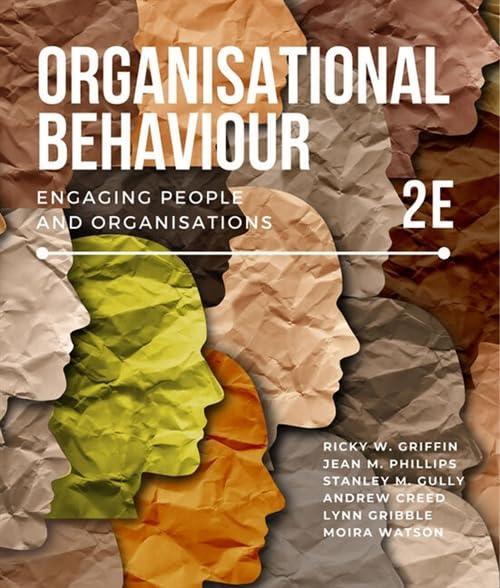As leaders, we need to recognise there is moral content to our actions. We are also imperfect
Question:
As leaders, we need to recognise there is moral content to our actions. We are also imperfect leaders, meaning that we may not always lead or our actions may not always benefit all people. Imagine you are the retiring CEO of a premier eco-resort in an idyllic tropical rainforest. Your resort has been internationally recognised for its low-impact environment footprint, particularly how you deal with waste. With only one week to retirement you have been feeling proud of your achievements and are looking forward to retiring on the significant bonus linked to your performance. There is nothing more to do now, except attend farewell dinners and make inspiring speeches. Your Head of Environmental Impact is coming to meet with you today and you are sure it is to tell you just how well your ‘footprint measures are tracking’. However, the officer arrives looking sullen and is not very talkative.
After a few minutes you ask what is wrong and they hesitantly say, ‘Well, you are due to retire, and what I know will impact you personally as well as professionally. I was waiting for our new CEO to arrive but I feel very concerned that then I will be held responsible’. Curious, you want to know what they have to say, but there is a risk that you will lose your bonus and your reputation. Not asking will mean something could be uncovered after you leave, but at least then it is not your problem. You have no time to contemplate your actions or seek advice. You know the ethical action is to ask.
Question
Would your decision be easier if there was no bonus money attached to your retirement?
Step by Step Answer:

Organisational Behaviour Engaging People And Organisations
ISBN: 272389
2nd Edition
Authors: Ricky W. Griffin, Jean M. Phillips, Stanley M. Gully, Andrew Creed, Lynn Gribble, Moira Watson





